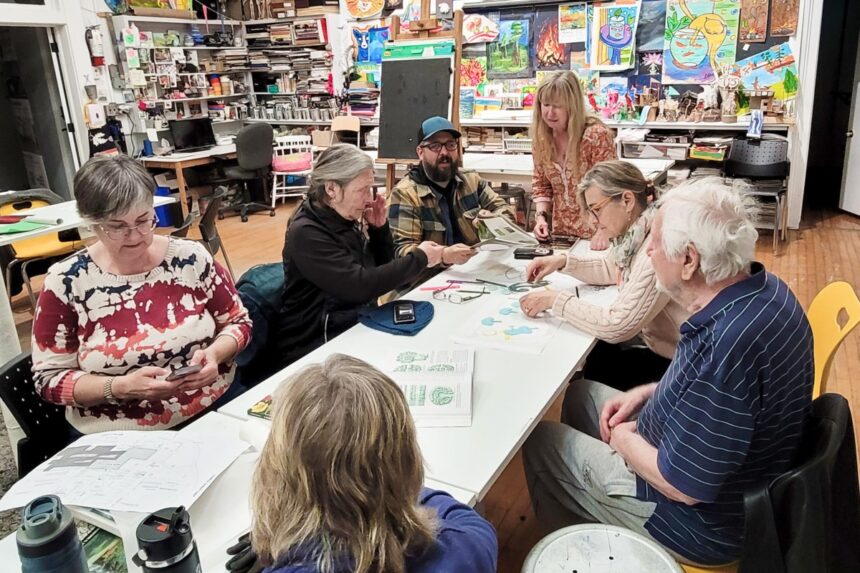In a groundbreaking initiative set to transform a portion of the Elora Centre for the Arts property, local environmental advocates have unveiled plans for the Elora Community Food Forest—a vibrant ecosystem that promises to nourish both the community and the environment for generations to come.
The ambitious project, spearheaded by a dedicated group of volunteers, aims to convert approximately one acre of land into a self-sustaining food forest featuring native fruit and nut trees, berry bushes, perennial vegetables, and medicinal plants. Unlike conventional orchards or gardens, this food forest will mimic natural woodland ecosystems, creating a layered habitat that supports biodiversity while producing nutritious food for community members.
“We’re designing this space to be both productive and educational,” explains Rene Van Acker, a University of Guelph professor and food forest committee member. “The multi-layered planting approach creates natural synergies between species, requiring minimal maintenance while maximizing food production.”
The committee has been working closely with the Elora Centre for the Arts to integrate the food forest into the existing landscape. The arts centre, recognizing the project’s potential to enhance community engagement, has enthusiastically offered the land along the eastern portion of their property.
Beyond simply growing food, the forest will serve as a living laboratory for sustainable agriculture practices and ecological restoration. Educational workshops on permaculture principles, native plant identification, and sustainable harvesting methods are already being planned for when the food forest begins to mature.
“This isn’t just about growing food—it’s about creating resilience in our local food systems,” notes committee member Sarah Robertson. “As climate change intensifies, these diversified food production models become increasingly valuable to community food security.”
The project has garnered significant support from Wellington County’s environmental organizations, with several offering expertise and resources. Funding applications have been submitted to various provincial grants focused on green infrastructure and community food initiatives, while local businesses have expressed interest in sponsorship opportunities.
Implementation will occur in phases, with initial site preparation and soil remediation scheduled for this fall. The first trees are expected to be planted next spring, with understory plantings to follow. While it will take several years for the forest to reach full production capacity, organizers are planning interim activities to engage the community throughout the development process.
Public consultation sessions are scheduled for the coming months to gather input from local residents and ensure the food forest reflects community needs and interests. The organizers emphasize that this will be a truly collaborative effort, with opportunities for volunteers to contribute at every stage from planning to planting to eventual harvesting.
As our global food systems face increasing pressures from climate uncertainty, projects like the Elora Community Food Forest offer a glimpse into more sustainable alternatives. The question remains: could this model of community-led food production be replicated across other municipalities, creating a network of resilient food forests that serve as both pantry and classroom for future generations?











